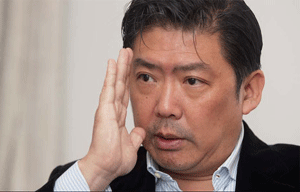Law leaves foreign firms insecure
Updated: 2011-10-21 09:00
By Yan Yiqi and Chen Xin (China Daily)
|
|||||||||
|
Foreigners have reason to welcome the benefits the law will offer, but the financial implications worry some. Yong Kai / for China Daily |
Legislation has taken effect that stretches the social safety net to include foreigners
For Richard Altman, president of FairKlima Capital, a venture capital company based in Beijing, the most pressing issue right now is not how to make a profit in these sluggish economic times, but how to pay for new social security expenses his company is required to pay for its foreign staff.
On Oct 15, the Social Insurance Law took effect, giving foreign workers retirement, medical, work-related injury, unemployment and maternity benefits.
As with any government benefit, salary deductions are par for the course, meaning the take-home pay for foreign workers will shrink, since some of their wages will be placed in a pension fund. Employers, such as FairKlima Capital, will also have to pay more.
For Altman's company, 20 percent of whose staff are European and another 30 percent from Asian countries outside China, the financial costs may force a shift in hiring strategies.
"The burden is too heavy, and I would have to consider hiring more Chinese staff instead of foreign ones," Altman says.
Contributions that foreign employees and their companies make - and the benefits they receive - will be calculated in the same way that the deductions and benefits of Chinese citizens are calculated.
In China, workers pay 8 percent of their salary and employers pay the equivalent of 20 percent of their workers' wages each month to the pension funds. Workers must contribute to the funds for at least 15 years to collect their pension after retiring.
But if you include expenses for medical, maternity and unemployment benefits, however, the monthly deductions rise to 11 percent, with employers paying up to 37 percent.
In Beijing, for example, the average worker is paid about 4,200 yuan a month, which means he or she would have 462 yuan deducted a month.
The Ministry of Human Resources and Social Security has yet to release details of the new law despite the Oct 15 implementation. Li Mingfu, a researcher at the ministry, says the percentage of deductions will be the same for Chinese and foreign workers.
According to the new ruling, all registered foreign workers with a valid work permit will be covered, including foreign workers employed by Chinese and overseas-funded enterprises, social groups, law firms, accounting firms and foundations registered in China, as well as foreign workers assigned to China by overseas registered companies.
The latest census in 2010 recorded nearly 600,000 foreigners living in China. About 231,700 had work permits.
One expatriate China Daily spoke with recently said she was dismayed by the new rule and is not willing to pay extra for social insurance.
"I am already paying social insurance bills in the United States and I do not want to double my payments," says Janine Coughlin, who moved to China three-and-a-half years ago and works for a Chinese magazine in Beijing. "I do not know how long I will stay in China and I am afraid it would be very troublesome when I leave here and try to get the money in my pension account back."
For employers, the rise in cost is a major concern.
"From an HR perspective, foreign employees often are in management and leadership positions and this group will likely be unhappy about having to pay additional costs," says Greta Mikelonis, principal and consulting director of health and benefits at Mercer China.
According to Mercer China's calculations, if a foreign worker's monthly salary is three times the local average salary, a company in Shanghai has to pay about 4,300 yuan ($670, 480 euros) every month for one foreign staff member and the expat worker will have to pay 1,300 yuan.
Calculations like Mercer's has foreign chambers of commerce in China worried.
"It will result in increased costs for all enterprises, institutions and other entities that employ foreigners," says Ulan Tuya, media relations manager at the American Chamber of Commerce in China.
"This could prove especially costly for small- and medium-sized enterprises and institutions and other entities that depend heavily on foreign employees," says Tuya, adding that this includes international schools and institutions that fuel the foreign business community in China.
Tuya says that there will be an immediate 30 percent increase in operating costs for an international school.
"Such a large increase in costs will negatively affect China's ability to attract foreign executives, researchers, experts and their families, and damage the investment environment," Tuya says.
Russell Brown, managing partner at LehmanBrown, an accounting firm in China, says that he is hoping for a more flexible approach to the new rule.
"I will have a very large increased cost, but with no benefits," Brown says.
"The concept of the overall social insurance is a good one, but I think there should be flexible implementations. For example, many foreign expatriates in China already have medical insurance, and they don't care about unemployment insurance," he says.
Brown also points out that the extra social security costs are going to make young expatriates on junior management levels uncompetitive in the labor market.
While both foreign employers and employees have been critical of the new law, Chinese experts think the regulation will net positive results.
Xu Yanjun, a deputy director at the Ministry of Human Resources and Social Security, says workers from countries that have signed social insurance agreements with China can avoid making contributions. But only two countries have signed such agreements: Germany and the Republic of Korea.
Li says this clause in the new rule might help China negotiate social insurance agreements with other countries to help foreign workers avoid being charged twice for social security. China is currently in negotiation with Japan on such a deal.
Li says the new regulation is not as inflexible as people think.
It stipulates that a foreign worker eligible for the pension but who has left China can still make arrangements with the nearest Chinese embassy to continue to receive the pension.
Current regulations also allow children to inherit the pension upon the pensioner's death.
A foreign worker may also continue paying social security bills if he or she leaves China and then returns to work. Pension contributions can be returned when the account is closed.
Although many companies and individuals are still unclear about the social security system, Mercer China suggests companies with foreign staff should prepare for the changes.
"The major concern of employers is about the administration and communication of the changes in regulations to their employees," Mikelonis says.










